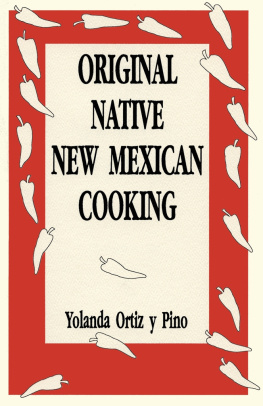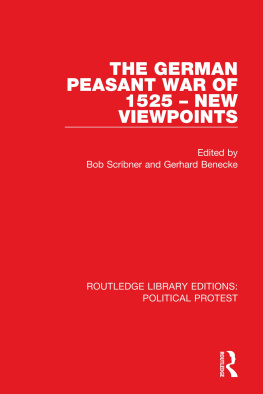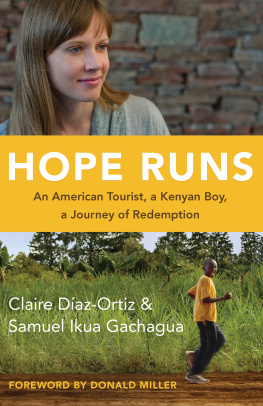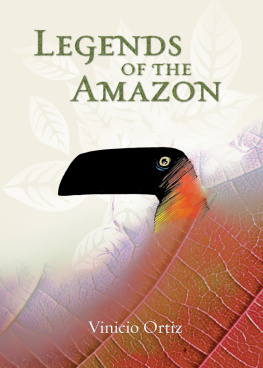UNCERTAINTIES IN PEASANT FARMING
LONDON SCHOOL OF ECONOMICS MONOGRAPHS ON SOCIAL ANTHROPOLOGY
Managing Editor: Charles Stafford
The Monographs on Social Anthropology were established in 1940 and aim to publish results of modern anthropological research of primary interest to specialists.
The continuation of the series was made possible by a grant in aid from the Wenner-Gren Foundation for Anthropological Research, and more recently by a further grant from the Governors of the London School of Economics and Political Science. Income from sales is returned to a revolving fund to assist further publications.
The Monographs are under the direction of an Editorial Board associated with the Department of Anthropology of the London School of Economics and Political Science.
UNCERTAINTIES IN PEASANT FARMING
A COLOMBIAN CASE
SUTTIREISSIGORTIZ
LONDON SCHOOL OF ECONOMICS MONOGRAPHS ON SOCIAL ANTHROPOLOGY
Volume 46
First published 2004 by Berg Publishers
Published 2020 by Routledge
2 Park Square, Milton Park, Abingdon, Oxon OX14 4RN
605 Third Avenue, New York, NY 10017
Routledge is an imprint of the Taylor & Francis Group, an informa business
Sutti Reissig Ortiz 2004
All rights reserved. No part of this book may be reprinted or reproduced or utilised in any form or by any electronic, mechanical, or other means, now known or hereafter invented, including photocopying and recording, or in any information storage or retrieval system, without permission in writing from the publishers.
Notice:
Product or corporate names may be trademarks or registered trademarks, and are used only for identification and explanation without intent to infringe.
ISBN 13: 978-1-8597-3839-9 (hbk)
ACKNOWLEDGEMENTS
The field work on which this study is based was made possible by a grant from the Organization of American States; the subsequent research was carried out under the auspices of the Consejo National de Investigaciones Cientficas y Tnicas, Buenos Aires. The opinions expressed in this book are those of the writer and not necessarily of the sponsoring institutions.
I am greatly indebted to Dr Duquez Gomez and the staff of the Institute Colombiano de Antropologa for their help and cooperation during the field research; to Bernal Villa and Hernandez de Alba for relevant information about Tierradentro, gained through their personal experiences; to the people of San Andrs and their parish priest for their hospitality and trust as well as for their patience with my persistent interrogation.
The critical remarks made by Professor Firth, Dr Bari and J. I. Jones have helped me clarify some of the ambiguity in the original text, written as a thesis for the doctoral degree. The book shows the imprint of many discussions, arguments and helpful questioning by my colleagues and students at the London School of Economics; their comments have served to urge me to develop the argument further than I had originally intended. Perhaps most of all I should thank the peasants of San Andrs who, with their down-to-earth comments, have prevented me from indulging in too many woolly explanations.
S. R. O.
MAPS
FIGURES
TABLES
The term peasant evokes either a distant world of romantic struggles, or of idyllic freedom, or of serfdom and drudgery, depending on the author and the period. It is difficult for even the most learned of scholars to shed the emotive connotation of the term and to describe the world of the peasant as real and not totally unfamiliar. The peasant's goals and aspirations are not altogether different from our own; his behaviour can be explained without having to resort to a different logical framework; his uncertainties are phrased differently, perhaps, but his response to them is similar to ours. Peasants are not endowed with a different soul or a different perception of the world from ours. If they behave differently, if they shy away from recommended policies it is because they are either less informed about certain events, or perhaps better informed about the realities of their physical, social and economic world than we are.
In this book I hope to explain the economic behaviour of Pez peasant farmers in Colombia. I consider their production strategies (what they plant and how much they plant) as rational reactions to a particular socio-economic environment. This environment is not peculiar to Pez Indians; it is in many ways similar to the socioeconomic environment of other peasants. The Pez Indians, for example, are like other Colombian peasants in that they plant coffee for sale, like to ride horses and would like to have enough money to travel to the cities and send their children to school. They are different from other peasants in that they represent a very poor sector of the population of Colombia, they live far from urban centres and some of them speak a different language from their compatriots. The special characteristics of their environment will become apparent later. It is the more general and theoretical points that I wish to emphasize here.
In the field of economic relations the population of peasant producers is characterized by its heterogeneity, the small population, the relative independence of each producer, and the limited output of each farmer. It is heterogeneous in the sense that not all producers share the same aspirations, the same knowledge, or the same responsibilities or hold the same amount of capital assets; each unit of production is different from the next. The productive units consist of only one family, their technological knowledge is limited and the amount of land they control can yield only a small surplus for sale. Furthermore, although they participate in the national economy they form a specific sector within it, which, owing to its geographical isolation has only limited contact with market economy. The peasant sector consists at the same time of a number of geographically distant and socio-politically semiautonomous communities amongst which there is little or no communication. Hence we can say that the peasant sector is subdivided into a number of very small subsectors which are linked not to one another but to the national economy through the export of coffee and the import of hard goods and certain staples. Each of these subsectors consists of about 300 to 400 producing units.
Peasant economies have been discussed as a special case of primitive economies (Nash 1966), as sectors of national economies beset by fluctuating prices and capital shortage (Wolf 1966) and as societies where the market principle prevails, 'but does not determine the acquisition of subsistence or the allocation of land and labour resources' (Bohannan and Dalton 1962, p. 3). Such approaches have helped to elucidate particular problems of marketing, social sanctions that affect the allocation of factors of production, and incentives for trade as well as for saving and investment. But they have too often led to an over-emphasis on the mechanism developed to cope with particular problems, as if they reflected a basic principle of organization of peasant economies.











